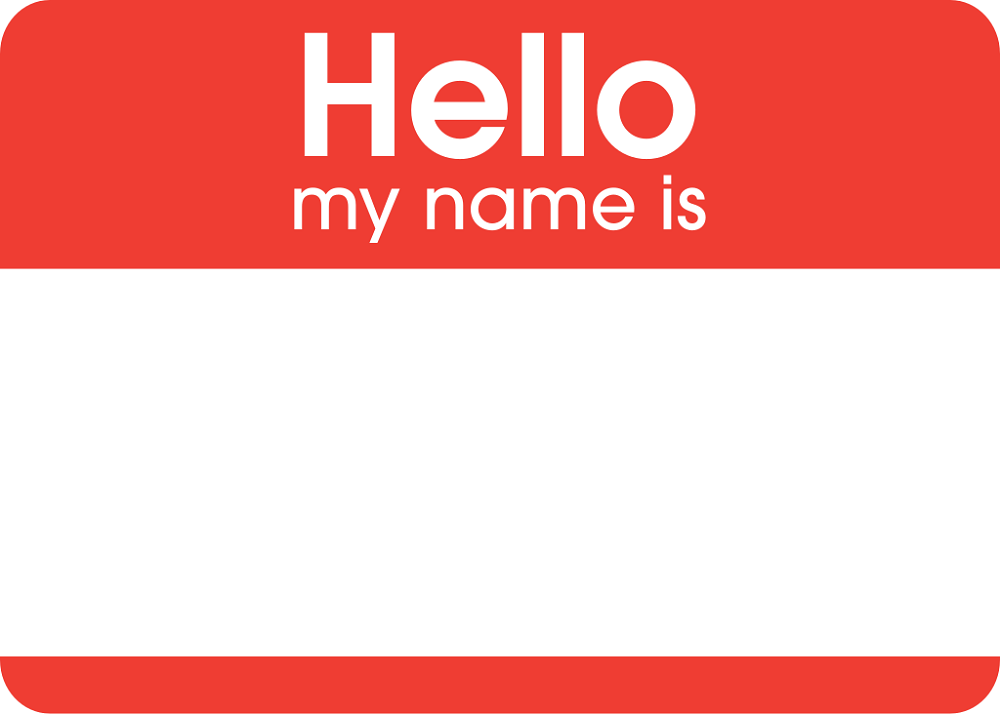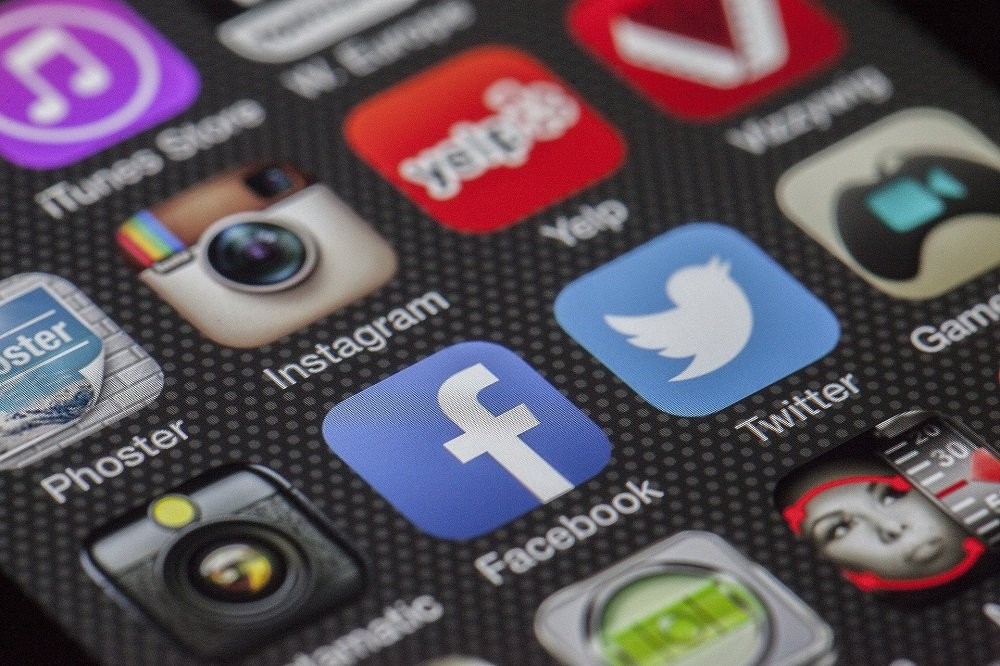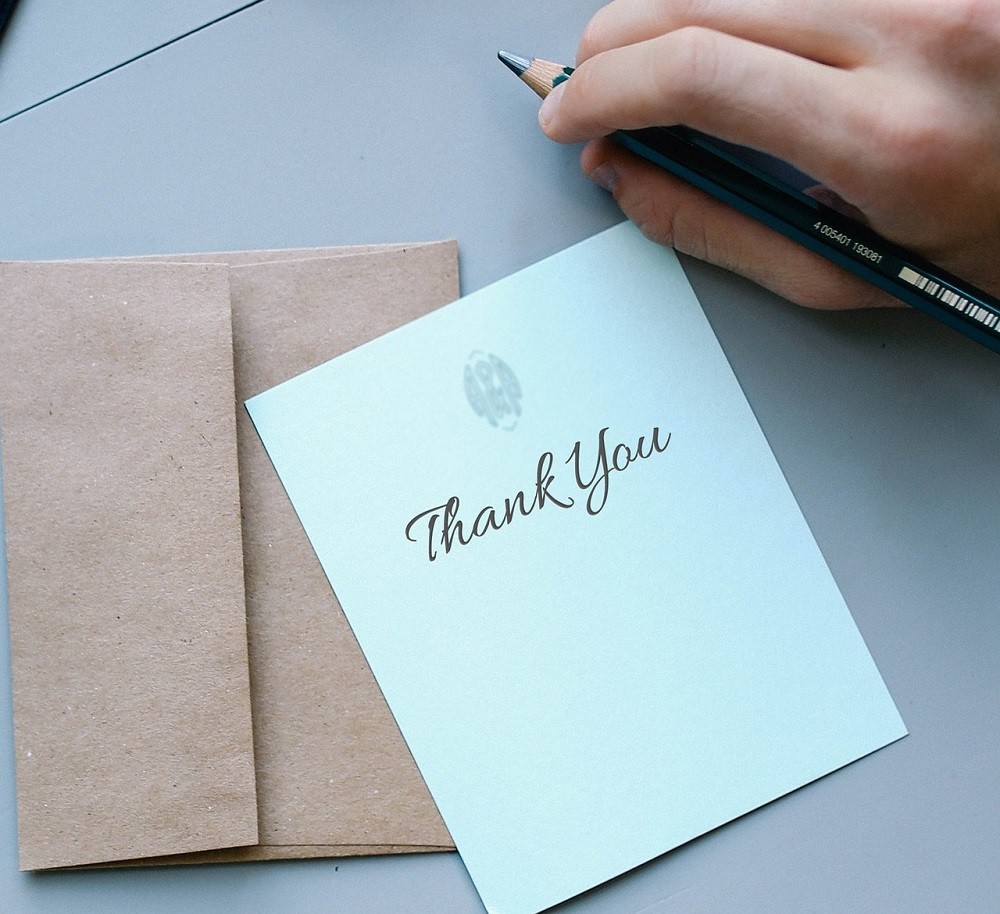The Esteemed Gentleman Articles
How To Master Social Etiquette: 30+ Essential Tips
Etiquette is not simply about knowing which fork to use in a multi-course meal, or about trotting around town in a three-piece suit and top hat. No—we think of etiquette as a set of guidelines for displaying respect, courtesy, and consideration toward others.
By following these guidelines, you express selflessness towards others and can help build your own self-worth through positive actions.
In this article, we review 30+ (38 to be exact) small etiquette rules that everyone should follow. Not only will you make the world a better place, but you'll also develop soft skills that can help with relationships, making friends, and moving up in your company. Everyone can use a little bit of etiquette in their lives, so let's get on with the list:
Say "Please" And "Thank You"
These two simple phrases, "please" and "thank you", are cornerstones of manners and etiquette. They are sometimes called "magic words" when teaching manners to children and are commonly used when asking someone for a favour or request or expressing gratitude for a good deed.
When you say "please" and "thank you", be sure to say them in a tone that is respectful and not demanding or short as this will make you sound disingenuous. You can go a step further with your thanks and express what you're thanking them for. For example: "Thank you for letting me borrow your car while mine was in the shop. I really appreciate it!". This will make them feel more valued and help build a stronger connection with them.
If you'd like to know more about the power of "please" and "thank you", our article titled Three Simple Phrases Every Modern Gentleman Should Know goes into more detail. Plus, there's a bonus word that you can use.
Address People By Their Name (Or Preferred Title)
Addressing someone by their name is not just a form of respect but also makes them feel important, since you are speaking directly to them and not to a group. Using prefixes adds another level of formality but isn't necessary unless you are speaking to a professional like a doctor. Ask the person what they'd like to be called and adhere to that.
Avoid calling people "bro", "boss", "champ", "pal" or any other casual titles, pet names, or nicknames unless that person has given you permission. They may not be comfortable with you addressing them by another name until you have built a strong relationship.
If you are having trouble remembering names, we have a guide with 16 helpful tips.
Avoid Discussing Touchy Subjects
Some people may feel uncomfortable discussing topics such as finances, politics, religion, and sex. These subjects are often very personal, and overstepping boundaries may result in hostility or the end of a friendship/relationship.
Sensitive topics should be avoided unless you have a strong relationship with the other person and can either come to an agreement or agree to disagree. If the other person chooses not to discuss a topic that makes them uncomfortable, do not try to convince or push them. Simply change the subject.
If you aren't sure what to talk about, here's a guide to 3 Simple Steps To Effective Small Talk that has a list of ideas and topics.
Avoid Talking About Gross Subjects In Graphic Detail
Gross subjects include bodily processes, secretions/excretions, and gore. Some people may not be comfortable discussing or hearing about these topics. They may feel queasy, squeamish, or disturbed upon hearing about your latest trip to the bathroom or a surgery you had. In extreme cases, they may faint or become nauseated.
Be mindful about these topics, even if you don't have an issue talking about them. If you notice the person you're speaking to showing signs of disgust (cringing, turning their head, saying things like "eww" or "gross"), refrain from going into more detail.
Be Mindful Of Colourful Language, Especially Around Young Ears
Profanity should be kept to a minimum at all times, but even more so around young ears. Children enjoy copying adults and parental figures, especially ones they find amusing, which can lead them to picking up colourful words and phrases that are unacceptable at school or on the playground.
While swearing is considered disrespectful and rude in many countries, it can be used constructively. Depending on the context, swearing can help emphasize an emotion, add shock value to the conversation, or be used humorously. Regardless, it should be used sparingly, if at all, in regular conversation. Be mindful of the company you're with and avoid swearing altogether if you feel it isn't appropriate.
Practice Being Humble
Humility is an attribute that takes time to develop. It begins with introspection and self-reflection, as you realize that you aren't perfect and that's okay; nobody is perfect. A humble person is open to new ideas and possibilities. They value their time and spend it making the world a better place by helping others, discovering new things, and ensuring every day is meaningful.
Humble people don't need external validation to feel good about themselves. Instead, they find happiness and joy in making others feel good. They celebrate wins and empower others with motivation and encouragement. A humble person is one who sees the good in others, even on bad days.
A humble person takes responsibility for their actions and doesn't deflect blame when they've done something wrong. They admit their mistake, take accountability, and find a solution. They forgive others when they've been wronged and never hold grudges.
Be There For Others
Whether it's cheering from the sidelines, being there when someone needs a friend, or even just making them smile, people will remember when you were there to support them. Being present for someone is more than just being physically there; it's actively listening to what they have to say, being empathetic, and connecting with them.
Sometimes we are too caught up in our day-to-day activities to remind others how much they mean to us. Take a moment to tell someone that you appreciate them and how much they matter to you.
Listen More Than You Talk
It may come as no surprise that we learn more from others when we actively listen to what they have to say. This means resisting the urge to interrupt, finish their sentences, or become distracted. Give the speaker your full attention.
You may have assumptions or views that differ from the speaker, so listen with an open mind and do your best to see things from their perspective before offering your own insight. You may learn something new or see things from a new point of view.
Be Observant And Make Mental Notes When Listening To Others
When you actively listen to others, you will pick up on details about them you may not have previously known. This could be simple things like their job position, if they're a parent, and what their interests are. It could also be more complex things like their family history or future dreams and goals. Continuing the conversation can give you more insights such as the names of their children or significant other, a challenge they're currently dealing with, or even a worry they may have.
You can use this information in future conversations to build and strengthen relationships. They may not think much of it at first, but when you bring it up again, it shows that you were listening and actually care about what they have to say.
Give Only Genuine Compliments
Genuine compliments come from the heart. They are filled with sincerity and are aimed at a strength that the other person possesses, which can range from their sense of style, their ability to quickly solve problems, or even a new outfit you've never seen them in before.
A genuine compliment is specific, not generic. Avoid generic compliments like "you look good today." (Even if it's not your intent, the other person may figure you're implying you don't normally think they look good.) Instead, say something like "I really like your [attire, hair style, accessory]," followed by why you like it: "it's totally your style", or "it really brings out your eyes", or even "you look like you should be in a movie."
Be Punctual
A punctual person arrives on time, submits tasks before deadlines, and does their best to manage their time effectively. Punctuality is a soft skill requiring awareness and time management. This means not double-booking, trying to complete multiple tasks in an unreasonably short time, or taking on too many projects, which can all lead to burnout, fatigue, or possibly termination.
When developing your punctuality and time management skills, building a routine helps. An example would be establishing a habit of laying out your clothes the night before to avoid spending time picking them out in the morning should you be running late.
Know When To Remove Your Hat
Although hats aren't as common as they were in previous decades, it is still important to know when to remove your hat. A simple rule of thumb is to remove your hat in private settings like a restaurant, house, or place of worship. You can usually gauge if you can wear a hat based on the formality of the building you're in and if you're seated for an extended period of time. Wearing your hat in areas such as waiting rooms, stadiums, transit, and malls is perfectly fine.
There are exceptions to this rule which we discuss in our article Hat Etiquette: When And Where To Wear Your Hat
Understand And Adhere To Dress Codes
Every building, public or private, has a dress code. Some places enforce it more than others. If you are unsure of the dress code, you can always contact the venue and ask what is appropriate or speak to someone who has been there before.
Places like pubs and stadiums will often have a more relaxed dress code while offices and high-end restaurants will have stricter dress codes. Some restaurants may deny you access if you show up in improper attire.
Remember: It's Easier To Dress Up Than Dress Down. You can always remove an article of clothing if you feel you are overdressed for the occasion.
Don't Overspray Your Fragrances
If you wear fragrances, be considerate of others and don't overspray. Some people may have allergies or sensitivities to fragrances and experience negative health effects such as headaches, dizziness, or nausea. If you work in a scent-free zone or plan on attending an area that is, such as a hospital, adhere to the rules.
The goal of a fragrance is to be discovered, not announced. This means only spraying 1-4 times depending on the concentration of the fragrance you are wearing (eau fraiche, eau de toilette, parfum, etc). Think of fragrances as your olfactory autograph.
If you want to learn more about fragrances, our articles 9 Reasons To Wear A Fragrance, How To Properly Test A Fragrance Before Buying, and How To Find Your Signature Scent contain a lot of useful information. Also, be sure to read our fragrance reviews if you are looking for something new and unique. You can find a list of our reviewed fragrances here.
Always Wash Your Hands After Using The Restroom
This should be a no-brainer but there are still people who don't do it. If you want to greatly reduce the risk of getting stick and spreading germs, wash your hands for at least 20 seconds after using the bathroom. Be sure to get under your fingernails by running your nails over the palm of your hand like you're scratching.
If you're worried about touching the handle of the bathroom door when you leave, look for a hands-free foot opener. Many modern bathrooms are outfitted with one of these, which prevents you from touching the handle. If the door does not have one, simply use a piece of paper towel.
Know How To Give A Proper Handshake
Many introductions and agreements include a good, firm handshake. You can learn a lot about a person by their handshake. A proper handshake should be firm but not so firm as to hurt the other person's hand. It also involves eye contact and a warm smile, which signals to the other person that you are trustworthy.
Always ensure your hands are clean and not sweaty when giving a handshake. If you are wearing gloves, remove them as a sign of respect. Some people may not want to shake hands, especially after the pandemic, so be respectful and follow them if they would rather fist bump or just nod.
The goal is to demonstrate professionalism, not show off your strength. If you would like to know how to give a proper handshake or learn about other alternatives, refer to our guide How To Shake Hands In A Post-Pandemic World.
Hold Doors Open For Others
Holding doors open for others is a simple action considered by many to be a fundamental act of courtesy and etiquette. A customary behaviour often taught to us at a young age, we may have held doors open for others without even thinking about it. Sometimes we're thanked, other times we aren't. So why do (and why should) we do it? It's simple:
Holding the door open for someone reduces the amount of time and energy it would take them to re-open it if it closes, especially if their hands are full, they have a disability, or they are trying to escape inclement weather. Regardless of the person's age, gender, or physical abilities, holding the door open for anyone behind you is polite and is good etiquette.
Tip: While there is no set rule for how long you should hold the door open for someone, you should always use your best judgement. If someone looks like they aren't physically capable of opening the door but they're 20 feet away, wait the extra few seconds and hold it for them. If they look like they're able, then you can let the door close.
Stay Home If You Are Sick
Avoiding getting sick at work during cold and flu season can be next to impossible, especially if you work in a close environment like an office or shop. One way to slow down or eliminate the spread of illnesses is to stay home if you are feeling unwell. Contact your boss or superior immediately if you are experiencing symptoms or wake up feeling under the weather.
For some, missing even a single day of work could be the difference between staying on top of bills and ending up in debt. If you absolutely cannot take a day off from work, speak to your boss or superior. They may be able to compensate by allowing you to work from home or in an area away from others, or may request that you follow precautionary measures like wearing a mask.
If you encounter someone at work who didn't stay home, do your best to keep your distance. Follow pandemic protocols and remain at least six feet away from them.
Don't Snap Your Fingers Or Holler To Get Waitstaff's Attention
If you have been seated at a restaurant table but haven't received your order, or you want to bring something to the attention of your server, refrain from snapping your fingers or hollering.
Instead, flag them down if they pass by or notify another member of staff if they walk past your table. If the restaurant is extremely busy or you don't see any staff, make your way to the host stand or bar to speak to someone.
Snapping your fingers, hollering, or waving down someone from across the restaurant can cause a scene and disrupt other patrons, ruining their dining experience and the ambiance of the restaurant.
Don't Cause A Scene If Your Meal Isn't To Your Expectations
Most waitstaff will visit the table shortly after delivering meals to ensure everything is to the patrons' liking. If your meal isn't, due to allergies, dietary restrictions, or other reasons, simply point out the mistake to the waitstaff.
Instances like this are usually taken seriously, so your meal will likely be re-made, changed to your specifications, or re-heated. If you are under a time constraint, they may offer you a discount or completely remove the dish from your bill.
Be sure to remain calm and polite. Avoid causing a scene, shouting, or being rude as this may result in you and your table being ejected from the restaurant and possibly banned.
Give Others The Benefit Of The Doubt
Unless you're a mind reader, you can never truly know what someone is experiencing. Maybe you dealt with a rude client, got cut off by a driver in a hurry, or had a falling out with a friend over a simple disagreement. It's better to take a step back and give the other person the benefit of the doubt before pointing fingers and jumping to the conclusion that they're a disrespectful jerk.
The person you dealt with may have received life-altering news about a family member, lost their job, or been struggling with their mental health, and you're best to give them space. If you are dealing with someone who is a constant jerk, our article titled A Simple Guide To Dealing With A*holes, Bullies, Jerks, And Sleazeballs offers some helpful tips you can use to avoid getting dragged down to their level.
Spread Kindness
Kindness can come in all forms and doesn't require money. Even small acts of kindness can go a long way. These can include offering your seat on public transit, smiling at a passerby, or even staying a few minutes late to help a coworker finish a task.
Spreading kindness is not only good for the other person, but it also improves your own mental health. Being kind helps us feel connected to others, helps others see good in the world, improves moods, and gives us the satisfaction of helping others succeed.
Never Keep Score
Keeping score in any relationship, be it with work colleagues, friends, or your significant other, is damaging. Scorekeeping can develop into a transactional mindset, where you expect something in return for every favor you do.
Instead, focus on the greater good and goals. Know what your strengths are and realize that when people ask you for help, they're doing it because they trust you or know you have more experience than them. Long-term goals and benefits will always rule over short-term wins.
Practice Mobile Phone And Texting Etiquette
While most people are aware of common phone etiquette such as turning your phone off during a movie and avoiding texting while driving, there are other less obvious etiquette guidelines that you should practice if you want to be respectful of those around you and those on the other line.
We have two articles that go into more detail and offer examples. You can read them by clicking on the links below:
Avoid Phubbing Others
Most of us always have our phones with us. While phones are great tools for staying connected to people over a distance, we should also be mindful of people in our physical presence and give them priority.
This means putting away your phone when you are with someone else and giving this person your full attention, showing that you are fully present and engaged, not bored and wishing you were somewhere else.
Phubbing is a relatively new term that is a combination of phone and snubbing. It is exactly what those two words are; you are snubbing others with your phone. What Is Phubbing And How Does It Affect Your Relationships is an article we wrote that explains, in more detail, what exactly phubbing is, how it hurts those around you, and how to prevent yourself and others from doing it.
Be Mindful Of What You Post On Social Media
Be careful if you use social media as a platform to vent about your co-workers, boss, or employer. They may be able to search you and see everything you post, especially if you use your legal name.
Many employers have the right to fire employees, under certain circumstances, if they believe that the employee's online behaviour goes against the company's code of conduct.
Also avoid posting sensitive details like personal, contact, and medical information. Refrain from posting about holidays and vacations until you return as this can signal to potential burglars that your home is unattended.
It is also good practice to avoid posting gossip, drama, and grievances as this could cause arguments and be shared with people outside of your social circle, creating more conflict.
Respond To Invites In A Timely Manner And Follow The Directions In The Invite
It is good etiquette to respond to an RSVP or invitation within 24-48 hours of receiving it. Whether it's just a small party on a Friday night or a large wedding, notifying the host(s) as soon as possible helps them to know how much food to buy and how many tables to set. They may have a catering company in charge who needs to have numbers before a certain date, so the sooner you tell them the better.
If you are RSVPing to an event, be sure to use the method indicated in the invitation. Many party planning websites (like RSVPify) track this information automatically whereas information relayed over the phone or through a text may be forgotten as the host has other concerns.
If the invitation does not include a +1 but you have a +1, simply reach out to the host(s) and ask if they are allowed to attend. Many RSVP invitations, though not all, will cater to having a +1. Don't be offended if the invitation is just for you. It's better to ask and know for sure than to arrive with an unexpected guest.Bring A Gift For The Host(s)
If you are invited to someone's home, it's good etiquette to bring a small, practical gift to show your gratitude to the host (or hosts). They are the ones who spent time and money preparing their humble abode for your presence.
Be mindful of the gift you bring. It would be in bad taste to gift a bottle of alcohol to a friend who doesn't drink or a sweet treat to someone trying to lose weight. Here are some suggestions depending on the event:
- If you are attending a dinner or gathering where food will be served: consider bringing a small, homemade dish or a beverage the host enjoys.
- If you are attending a housewarming: bring a small decoration like a painting, ornament, or even a wax melt or candle.
- If you are staying with someone for a few days: Restocking food/drinks you enjoyed during your stay, gift cards, coffee or tea mugs.
- If you are attending a festive party like Christmas or Thanksgiving: desserts, an ornament or holiday-themed decoration.
- Other types of gifts include stationery, kitchen utensils, drinkware like coffee and tea mugs, cookbook and/or cocktail books, a charcuterie board, or even a scented candle or wax melts.
Making Food For Others? Ask About Restrictions
If you are making food for others, be considerate of those who may have dietary restrictions. This includes food allergies or sensitivities, vegan or vegetarian diets, or religious restrictions like kosher.
It's best to ask beforehand so you can adjust the meals and ingredients accordingly or make a different dish altogether. Be sure not to cross contaminate any ingredients and cooking utensils.
The same rules apply if you are bringing food to a social gathering like a party or pot lock. If you are unsure, ask the event coordinator or host and see if they can find out for you. It's better to be on the safe side than have someone have an allergic reaction.
Send 'Thank You' Notes In A Timely Manner
Although thank you notes aren't common these days, they are still an impactful way to show appreciation for someone's generosity or hospitality. A hand-written note expressing your gratitude will be a cherished gift for the recipient.
A thank you note doesn't have to be a long, drawn out, emotional short story. Keep it short and precise; include the date you're writing the card, address the recipient(s) by name, state what you are thankful for, how it made you feel, a promise to reciprocate the generosity or that you'll speak to them soon, then close either formally (sincerely, regards, best wishes) or informally (best wishes, thank you, love) followed by your name.
Mail the card within a realistic timeframe after writing it (24-72 hours is preferred) and refrain from telling the recipient. The gift of a surprise such as this will warm their hearts, especially if they're not expecting it.
Apologize When You Are Wrong (And Be Sincere!)
One of the hardest things to do in life is to admit you were wrong and give a sincere apology. It takes courage to apologize but doing so has benefits including repairing relationships, developing better emotional intelligence, and increasing empathy.
A sincere apology is more than just saying you're sorry. It comes from a place of remorse and a promise that you will be more considerate of your words and actions to prevent the same mistake from happening again. You recognize what you did wrong and understand how it made the other person feel. There is no going back, only mending the present and learning from your mistakes.
Utilize The Power Of "Yes" And "No"
"Yes" and "No" are two of the most powerful words you can use. They can help establish boundaries, define your values, and indicate to others what you are comfortable doing and not doing. When you use these words, you are giving others a definitive answer that cannot be misinterpreted. This eliminates any confusion that may arise from a non-decisive answer like "maybe" or "I'll see".
Both words are complete sentences, which means you do not need to elaborate further regarding your decision if you choose not to. Depending on the situation (like a family member, boss, or friend asking an important question), you can offer some insight, but if you firmly believe in your answer, you shouldn't feel pressured into providing an explanation.
Remember that your answer (whether yes or no) is a verbal demonstration to others that you value your time, so don't feel like you have to say yes to everything just to please people. Be responsible with your time to avoid becoming overwhelmed trying to complete all the tasks you said yes to.
Always Keep Your Promises. Even If They're Small
When we make a promise to someone, we are assuring them that we will follow through with a specific task or action they asked us to do. Keeping and following through with your promise demonstrates that you are accountable, dependable, and trustworthy.
This also builds rapport, which will lead to stronger relationships and better job opportunities.
Do not feel obligated to make a promise you cannot keep. If someone asks you for a commitment that you know you cannot fulfill, be honest and tell them right away or as soon as possible if something more important has come up. Do not leave them hanging or tell them last minute.
Actions Always Speak Louder Than Words
If you make a promise, you should put that promise into action. This includes going to the gym if you said you would, taking the trash out, helping your friend move, and so on. Acting on the promises you made shows others what your true intentions are.
People won't want to associate with you if you rarely show up when you say you will. They will begin to lose trust in you and stop inviting you out or asking you for favors, which can tarnish or end the friendship.
Don't Correct Others In Public
Correcting someone in public is a sure-fire way to embarrass them, especially in a group setting. They could even become defensive if they feel you're being overly critical or attacking them. Even if we think we are helping, it's best to wait to talk to the other person in private.
If the correction is regarding their appearance—their fly is down, there's food stuck in their teeth, or they forgot to remove a tag from their clothing—you can subtly gesture or quietly let them know and avoid causing a scene.
If you are correcting someone on directions or instructions that should be followed in a specific way, be sure to back up your correction with evidence, not opinions. Perhaps you have experience doing the same task or know an easier way. You can offer tips based off your own experience, but never tell someone they're wrong or stupid.
Avoid Giving Unsolicited Advice
Although we may have the answer or some helpful guidance for someone, it's best to avoid giving unsolicited advice. Even if we have the best of intentions, the other person may misinterpret our help as manipulative, demeaning, or intrusive. They could even become defensive and refuse any help altogether.
The easiest way to give advice is to ask the other person if they're open to ideas, suggestions, or solutions. You could add that you have experience, share a quick story of how you figured out a similar problem, or simply ask if they need any help. If they say no, don't try to convince them to change their mind. "No" is a complete sentence.
Put Things Back Where They Belong
Whether you borrowed a coworker's pen, decided not to purchase an item at the store, or share a living space with someone else, it's good etiquette to return items how and where you found them or to their proper place, like the dishwasher if you used a cup or dish.
Not only is this a sign of respect towards others, but it also helps you develop organizational habits and eliminates the stress and anxiety of not knowing where the item is if you need it again. Maintaining cleanliness in your home will help keep you relaxed, especially when returning home after a long day at work when you just want to kick up your feet.
Return Your Shopping Cart When You Are Done
Put away your shopping cart as soon as you finish loading your groceries into your vehicle. Abandoned carts take up space in a busy parking lot and can cause property and vehicular damage. Unless someone flags you down and offers to take your cart from you, always return it to its proper place (even if you found it abandoned in the first place).
If you have children, remind them that returning the cart to the carousel demonstrates responsibility and is the right thing to do. This will help them develop and strengthen soft skills that will aid them in other areas in their lives such as cleaning up after themselves and being respectful of other people's belongings.
Summary
Understanding and practicing these essential rules of etiquette demonstrates your ability to make others feel comfortable in your presence, creates a stronger level of mindfulness, and promotes respect towards others and yourself. Good behaviour and respect have a compounding effect that can easily spread from person to person.
Next time you follow one of these etiquette guidelines, remember that the person you helped could pass it on to someone else, continuing the cycle of good deeds.
When you subscribe to the article, we will send you an e-mail when there are new updates on the site so you wouldn't miss them.
















Comments